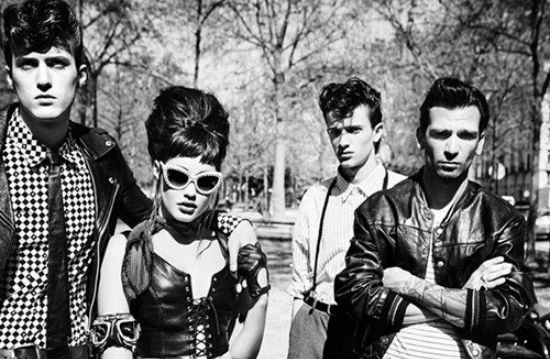One of my favorite pieces on the legacy of Billy Graham also has one of the best titles — “Billy Graham and the Hell Bombs.” You now have the name for your next rockabilly and/or Mojo Nixon tribute band. You’re welcome.

This is from Philip Jenkins over at the Anxious Bench. Graham’s death has Jenkins revisiting some old research of his into 1950s-era anti-Communist politics in Pennsylvania. “As part of that,” he writes, “I explored Graham’s historic 1952 crusade in Pittsburgh, which was then a primary battlefield of anti-Red campaigning.”
What follows is a terrific little history lesson — one that focuses in on some granular specifics that I think help us to understand broader themes. Despite the Pittsburgh setting, this story hits closer to home for me here on the other side of the commonwealth — with unflattering cameos from my former home town (Ardmore) and my alma mater (EBTS).
[Graham’s] Pittsburgh crusade of 1952 coincided with the public panic over so-called “hell-bombs” – hydrogen bombs – and of nuclear warfare more generally. (The first full hydrogen bomb test would occur in November 1952, but the concept had been widely discussed for some years, and there had been several partial tests). Graham consistently presented world-events in this eschatological framework. He declared that “All of the trouble with Russia began in the Garden of Eden.” Only a religious revival could prevent what was ultimately a spiritual rather than a political menace: “Unless this country has a revival of both morals and religion, it can’t survive the onslaught of Communism.”
Graham represented the apocalyptic strain in the evangelical approach to Communism, the diabolical inspiration of which was proved by the destruction of Christian missions in China and elsewhere. The imminence of the end times might well be signaled by historic events like the recent return of the Jews to the land of Israel – and of course, the development of larger and larger nuclear weapons. If you did not recognize that these were the end times, you weren’t reading the headlines.
Graham’s anti-Communism also made his evangelistic outreach implicitly political. The Cold War was not a partisan political issue, but Graham’s apocalyptic approach aligned him with the conservative side of the spectrum.
Though overt political references were not part of Graham’s sermons, news coverage of the event was steeped in apocalyptic and anti-Communist rhetoric, and the organizing committee included such firm enemies of the Communist challenge as Governor John Fine and Sam Shoemaker, and a roll-call of the region’s most conservative evangelicals. The astonishing response was influenced by fears of nuclear apocalypse, which resonated so closely with religious concerns and predictions. As Graham remarked at that time, “The advent of the atomic bomb and push-button warfare has silenced those who once scoffed at talk of doom’s day.”
Graham was a “Rapture” Christian. He believed in the fatalistic, otherworldly premillennial dispensationalist system that became popular in the early 20th Century when the more hopeful strain of postmillennial Christianity began to lose a bit of its Glory, glory, hallelujah. He believed that “doom’s day” was prophesied, predestined, and inevitable, yet he wasn’t giddy about the prospect of it the way so many later PMD “Bible prophecy” enthusiasts seemed to be. I’m still trying to suss out how this influenced his politics. (The influence of eschatology on politics is confusing because it isn’t usually coherent. See, for example: Tim LaHaye.)
My main point here, though, is that as Jenkins notes, Graham’s anti-Communism was an essential aspect of his message, his persona, and his popular appeal from the start of his ministry on up through the 1980s. This is why it won’t do to portray Graham as less partisan in his politics than his successors in the religious right. He was a Cold Warrior rather than a culture warrior, but Cold War politics shaped his message and his identity just as much as culture-war politics shapes theirs. That politics provided him with a politically conservative base of financial support and thus bound him in turn as a supporter of political conservatives.
Jenkins commends Stephen Carter’s essay on “Billy Graham’s Record on Race,” but I think a big piece of what Carter misses there can be explained by the anti-Communist core identity that Jenkins’ own essay describes. Graham’s initial, admirable support for moderate steps toward integration faltered later when civil rights’ leaders began to be painted as Commies. His somewhat overstated friendship with Martin Luther King Jr. dissipated when King began explicitly questioning and challenging capitalism. And I’m sure that J. Howard Pew and the other wealthy conservative supporters Jenkins mentions had something to say about all of that.
I’m not suggesting a straightforward quid-pro-quo there, with Graham recognizing the right thing to do with regard to support for the Civil Rights Movement and then choosing not to do it so as not to anger his powerful and wealthy allies. I think, rather, that partly because he was tied to and shaped by those allies, he was unable to recognize the right thing to do.
In any case, the culture-war partisanship of contemporary white evangelicalism is not a radical break from the Cold War conservatism of Billy Graham. It’s a direct result of it. To understand how that happened, I’ll want to return again to the 1981 manifesto that Richard John Neuhaus wanted us to forget.












